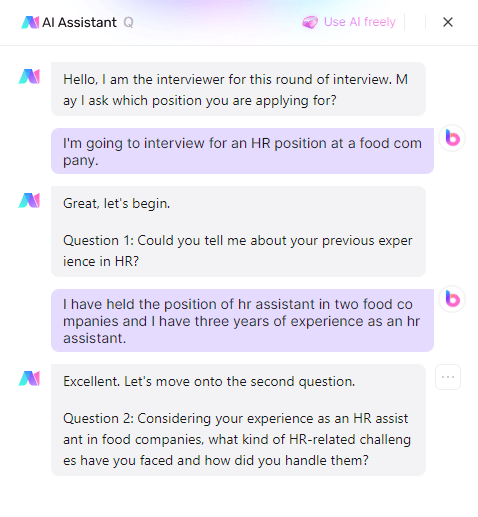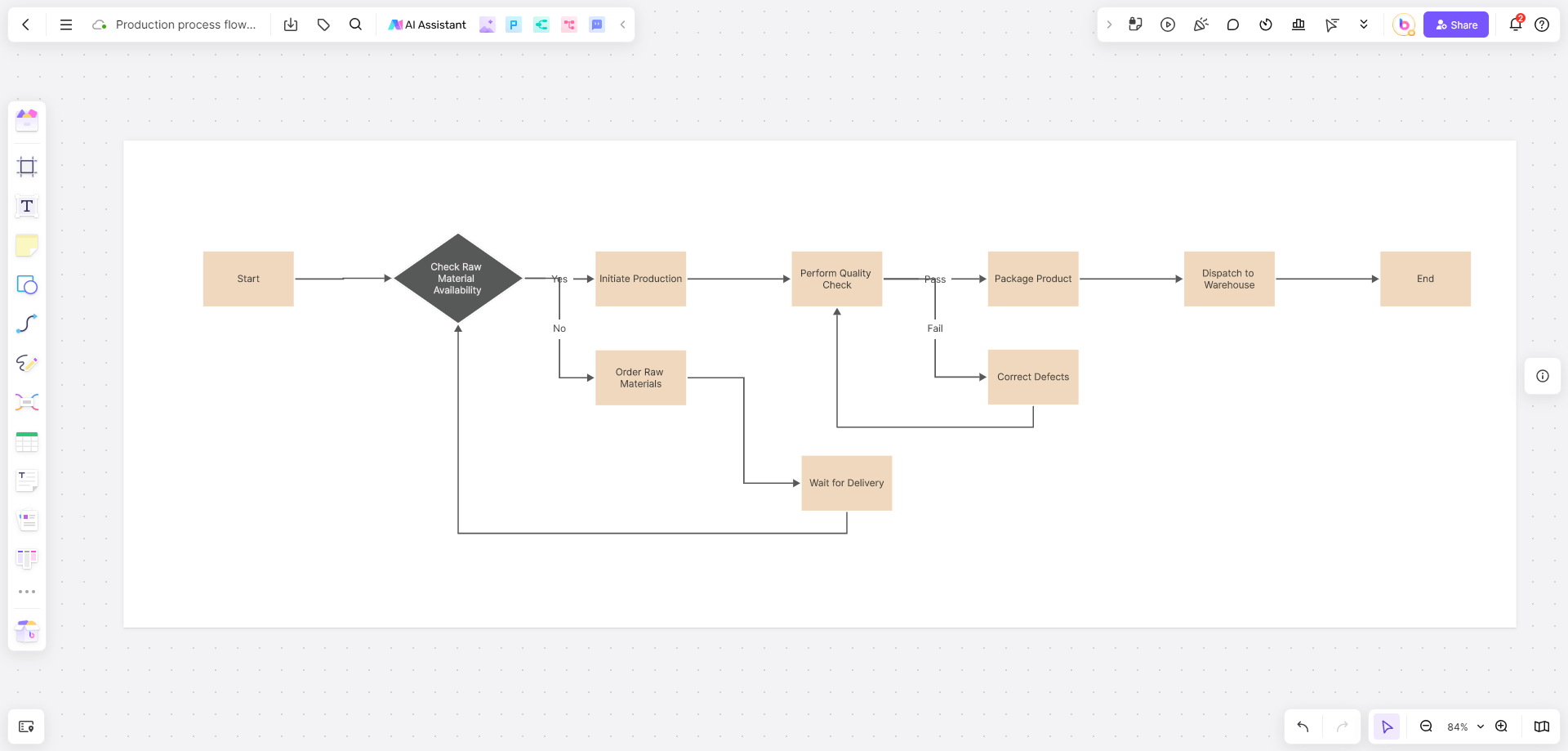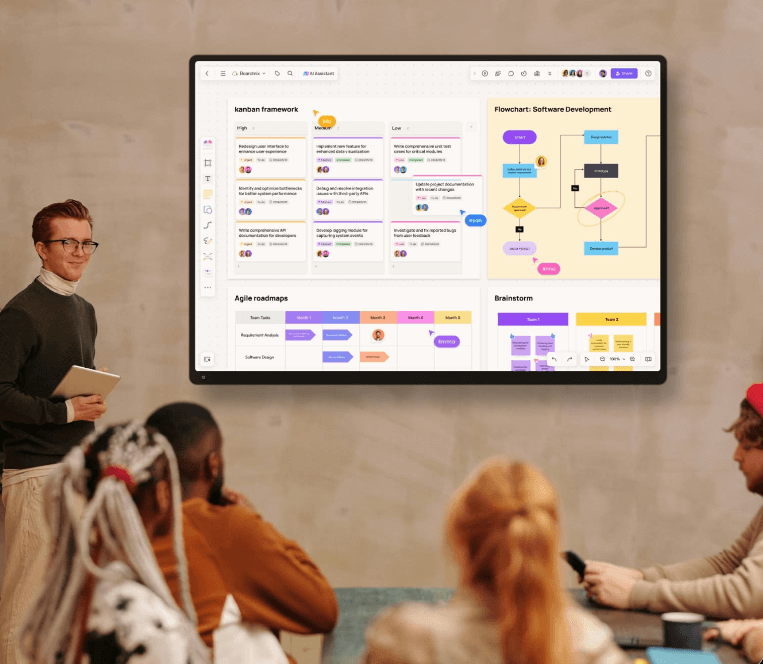The future of project management is digital and collaborative. An effective project management is more crucial than ever. To help you navigate the plethora of available tools, we've conducted a detailed survey and analysis to identify the best project management software for 2024. Our study included input from industry professionals, encompassing a wide range of functionalities and preferences.
Survey Scope and Methodology
✨Tools Assessed: 150 ✨Categories: 11 ✨Vote per category: 1 ✨Participants: 200
The survey identified the top project management tools based on the preferences and experiences of 200 professionals. Participants selected their favorite tools from a list of 150 options, with the survey running from January 1 to May 31, 2024.
Each tool was categorized based on its primary features and functionalities. While some tools could fit multiple categories, we assigned each to the category that best represents its core capabilities to maintain clarity and focus.
Here are the Survey Results
1. Overall Best Project Management Tool
When it comes to the overall best project management tool, Asana emerged as the favorite, capturing 35% of the votes. Asana's comprehensive feature set, ease of use, and robust integration capabilities make it a standout choice for diverse project needs.
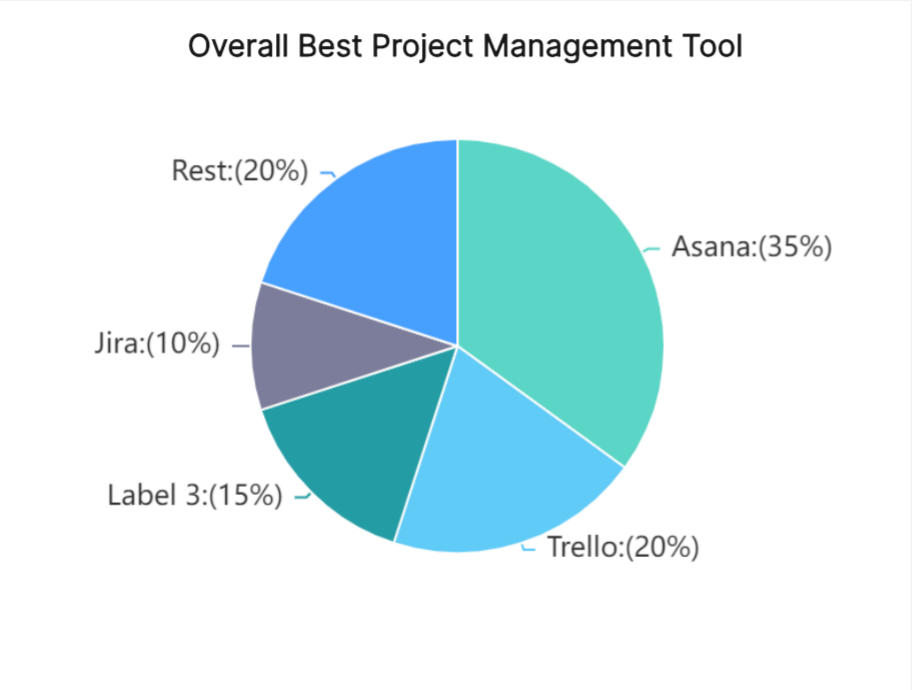
2. Best Tool for Task Management
For task management, Trello was the clear winner, securing 40% of the votes. Trello's intuitive Kanban boards and flexible task management features resonate well with users looking for straightforward task organization.
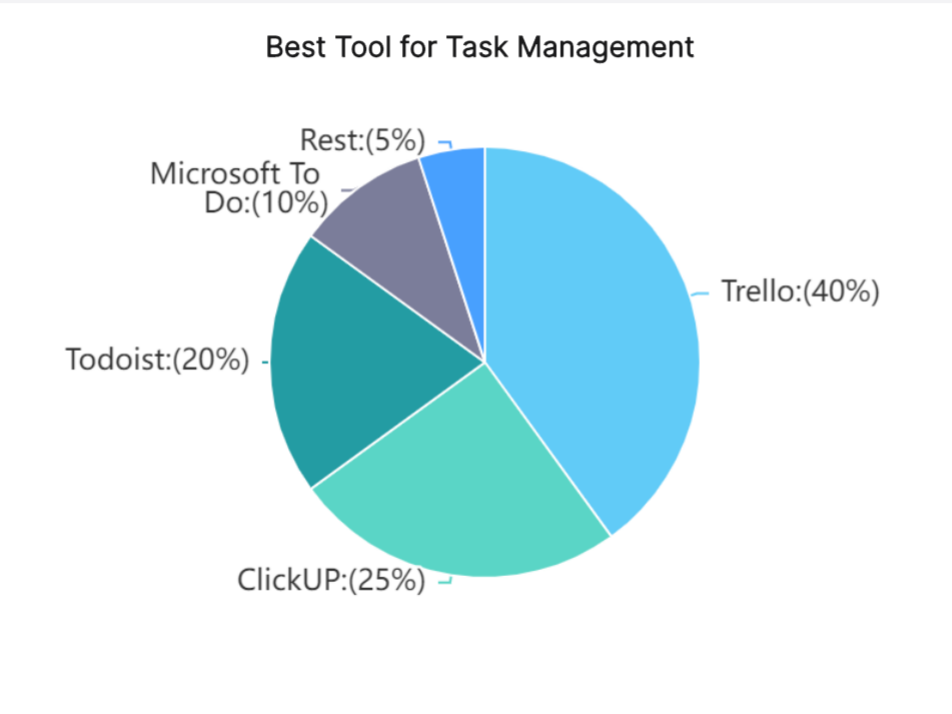
3. Best Tool for Agile Project Management
Jira continues to dominate in the Agile project management space, garnering 45% of the votes. Known for its powerful Agile features like Scrum and Kanban boards, Jira is the go-to tool for Agile teams.
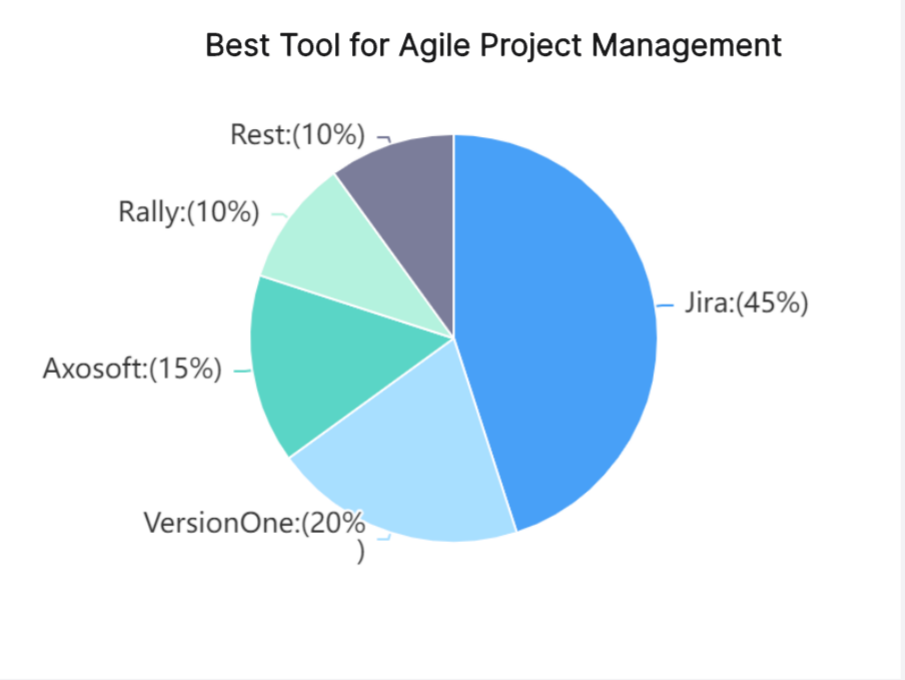
4. Best Tool for Collaboration
For collaboration, Boardmix took the lead with 30% of the votes. Its visually appealing interface and strong collaboration features, including file sharing and team communication, make it a favorite among teams.
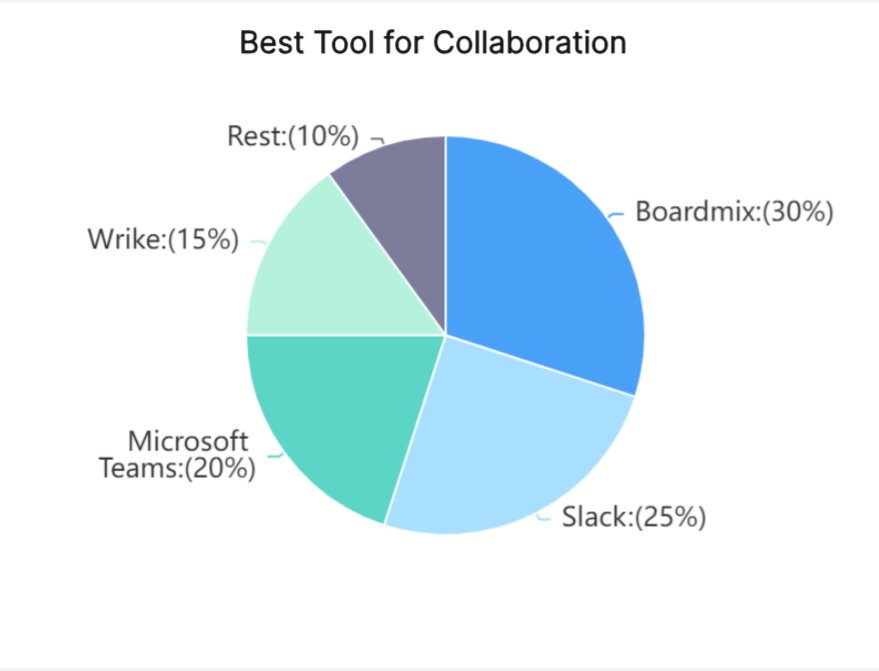
5. Best Tool for Resource Management
Smartsheet was the top choice for resource management, securing 33% of the votes. Its robust resource allocation and tracking features help teams optimize their resource utilization effectively.
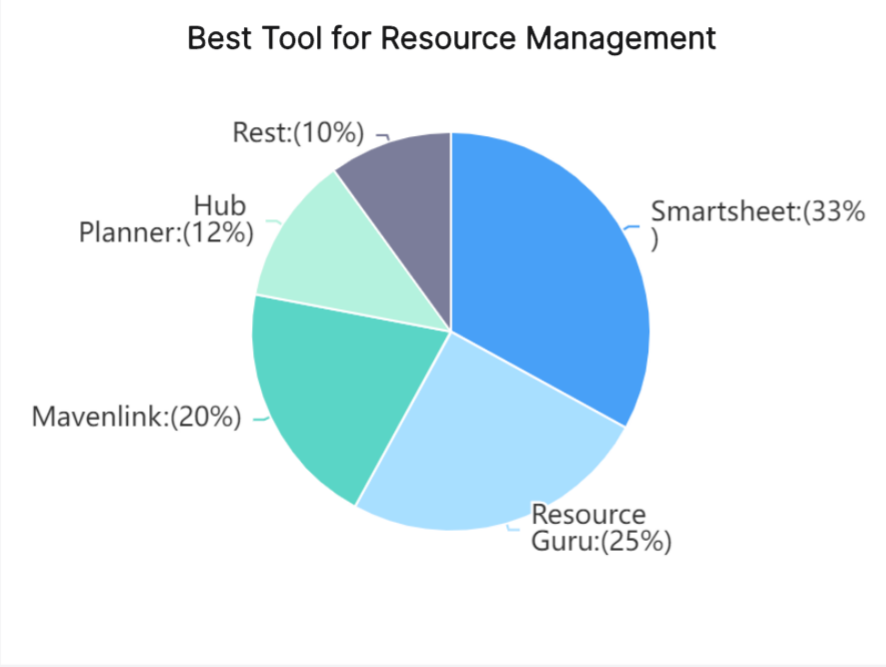
6. Best Tool for Time Tracking
Harvest emerged as the preferred tool for time tracking, capturing 40% of the votes. Harvest's easy-to-use interface and powerful reporting features make it an excellent choice for tracking time and managing budgets.
![]()
7. Best Tool for Project Portfolio Management
When it comes to project portfolio management (PPM), Planview was the clear favorite with 38% of the votes. Planview's comprehensive suite of PPM tools supports strategic planning, project execution, and performance tracking.
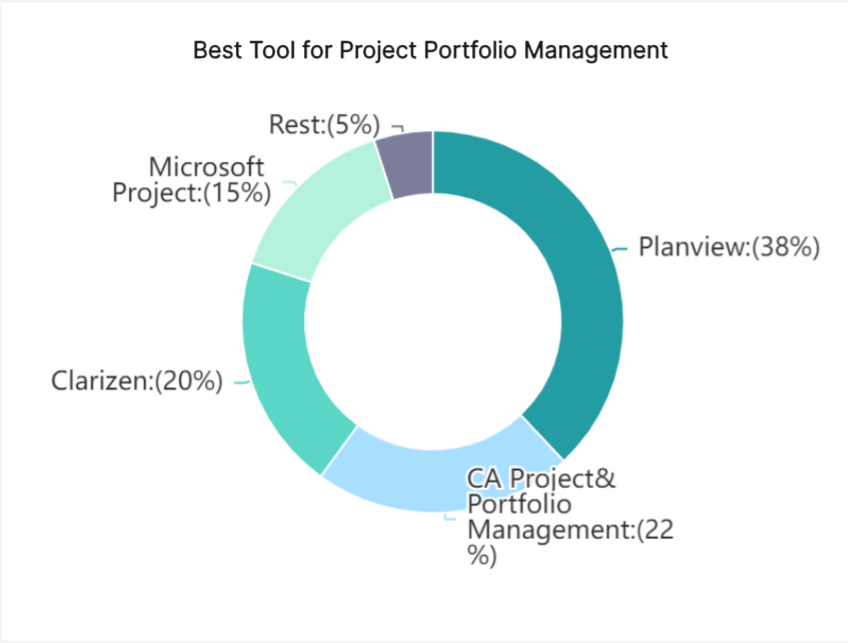
8. Best Tool for Reporting and Analytics
For reporting and analytics, Tableau was the top choice, securing 35% of the votes. Tableau's advanced data visualization capabilities and powerful analytics features enable teams to gain deep insights into their project performance.
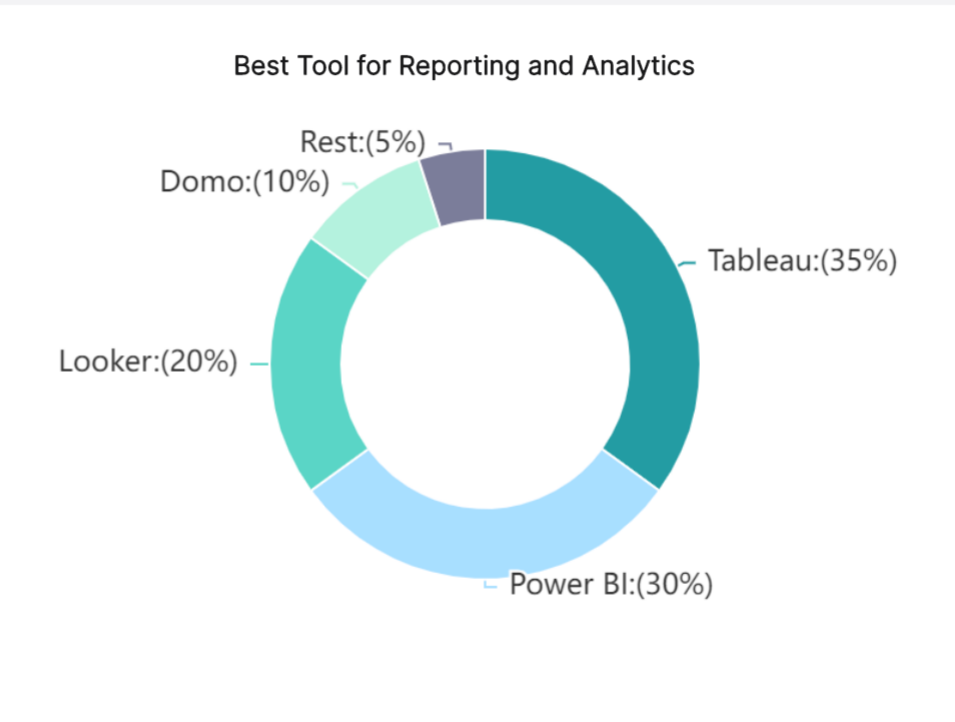
9. Best Tool for Budget Management
In the budget management category, Float emerged as the favorite, capturing 32% of the votes. Float's precise budgeting features and intuitive interface help teams keep their projects on budget.
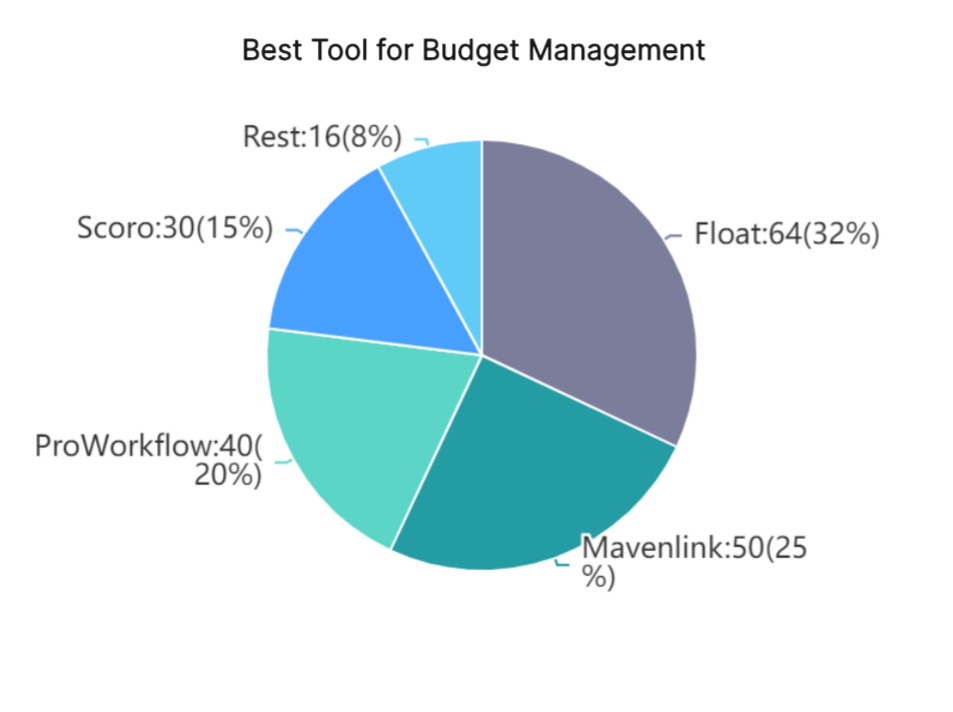
10. Best Tool for Gantt Charts
Lastly, for Gantt charts, TeamGantt took the lead with 38% of the votes. TeamGantt's user-friendly interface and powerful Gantt chart features make it an excellent tool for project planning and tracking.
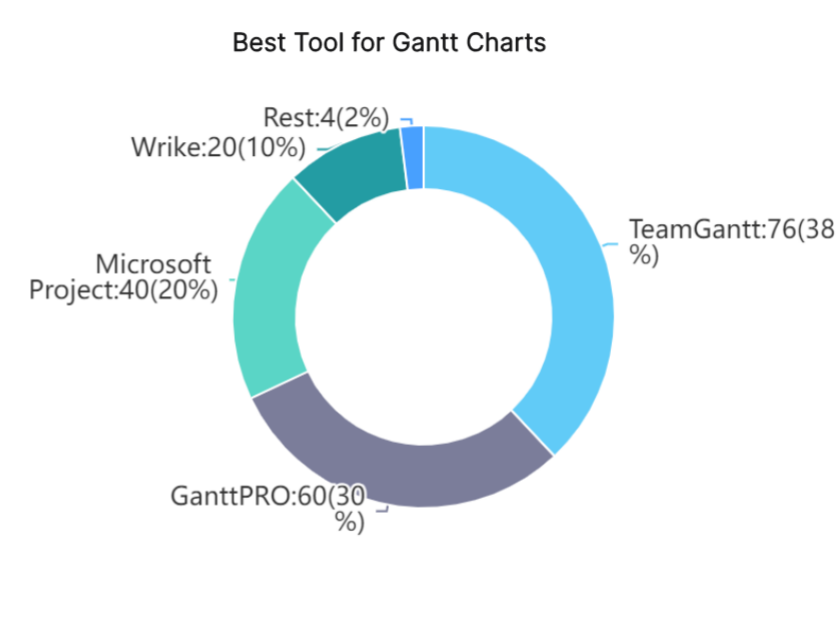
11. Best Tool for Online Whiteboards
For online whiteboards, Miro was the top choice, capturing 28% of the votes. Miro's intuitive interface, real-time collaboration features, and vast array of templates make it a favorite among project teams looking for a dynamic brainstorming and planning tool. Boardmix followed closely with 25% of the votes, recognized for its user-friendly design and seamless integration with other project management tools.
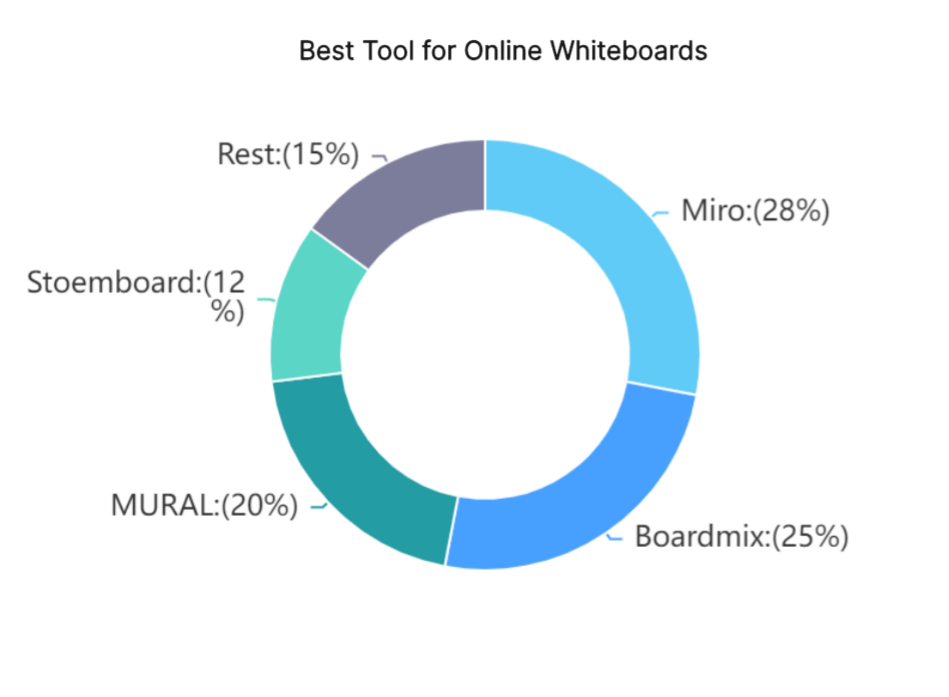
And that wraps up our 2024 Best Project Management Software survey results. The diverse array of tools highlighted in this guide showcases the variety of options available to meet different project management needs. Whether you are looking for comprehensive project management solutions or specialized tools for specific tasks, this guide aims to help you find the best fit for your team.
Remember, the key to successful project management lies in selecting tools that align with your team’s workflow and project requirements. Keep these insights in mind as you explore and implement project management software in your organization.
Stay tuned for next year's update, and be sure to follow us on social media for more insights and updates on project management tools and best practices. For more other project management software, here is also a comprehensive collection, so keep reading and exploring!
Cloud-based Project Management Software
Here are some of the top cloud-based project management software options:
1. Boardmix: Provides cloud-based tools for project management, team collaboration, and client communication.
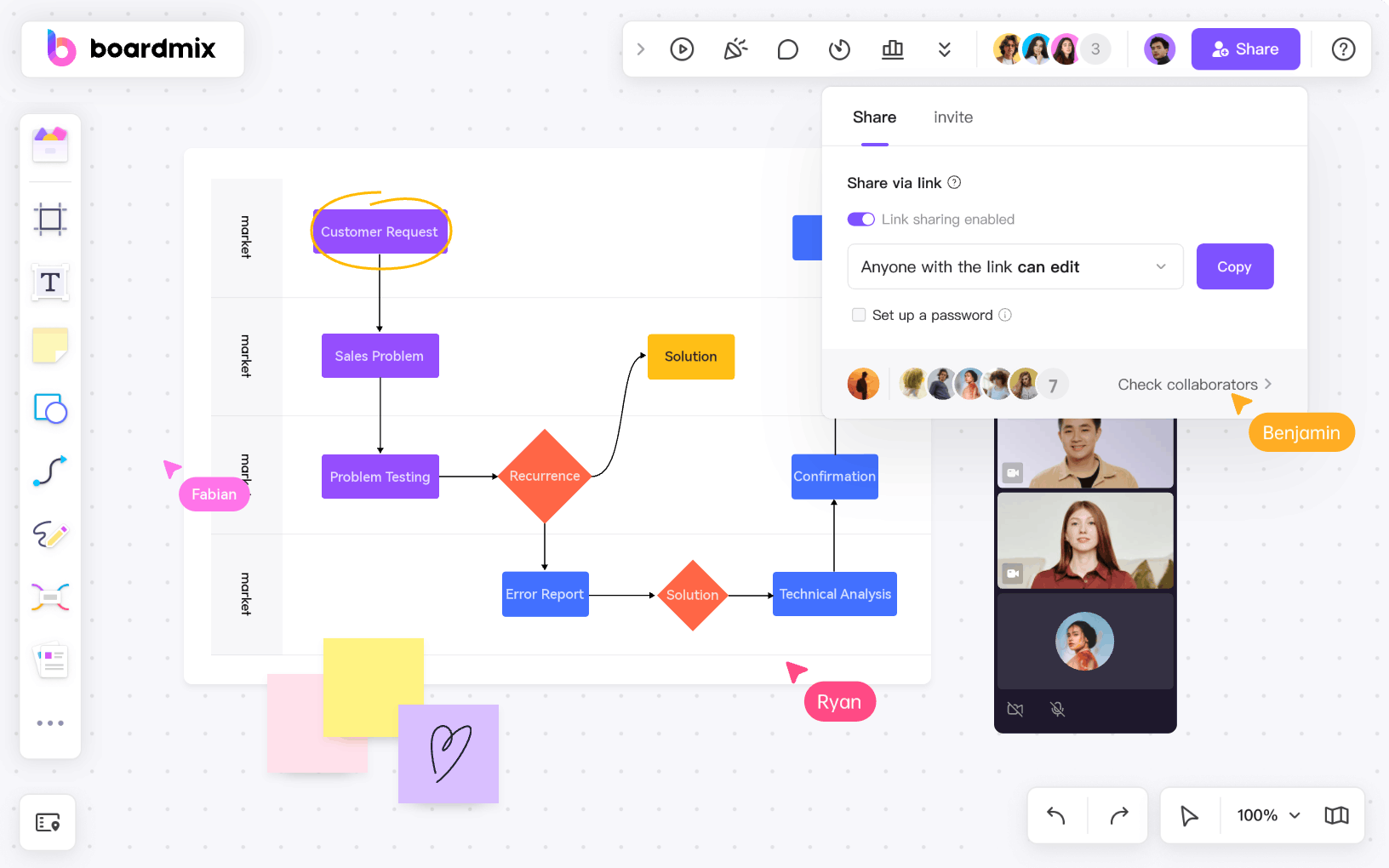
2. Trello: A simple and visual kanban-style project management app that works well in the cloud. Offers a free plan and integrates with many other tools.
3. Monday.com: A highly customizable cloud-based platform for project management, team collaboration, and workflow automation.
4. Wrike: A comprehensive cloud-based project management solution with features like Gantt charts, dashboards, and resource management.
5. Basecamp: A focused cloud-based tool for team communication, task management, and project organization.
6. Jira: A powerful cloud-based agile project management tool, part of the Atlassian suite of products.
7. ClickUp: A flexible and adaptable cloud-based project management app with a wide range of features.
8. Asana: A popular and feature-rich cloud-based project management tool. Offers boards, calendars, and reporting for teams of all sizes.
9. Smartsheet: A cloud-based project management and collaboration platform with spreadsheet-like functionality.
10. Airtable: A cloud-based hybrid of a spreadsheet and a database, great for organizing projects and teams.
The key benefits of cloud-based project management software include:
- Accessibility from anywhere with an internet connection
- Automatic updates and maintenance by the provider
- Scalability to accommodate changing team and project needs
- Seamless collaboration and file sharing across distributed teams
- Reduced IT overhead compared to on-premise software
When evaluating cloud-based options, consider factors like ease of use, integrations, security, and pricing to find the best fit for your organization's project management needs.
Best Free Project Management Software
Here is a list of some of the best free project management software options:
1. Trello: A simple and visual kanban-style project management tool. Offers a free plan with limited features.
2. Boardmix: An online whiteboard with powerful project management and team collaboration tool. The free plan allows up to up to 500 members collaborating on one board.
3. Notion: A versatile workspace that can be used for project management, note-taking, wikis, and more. The free personal plan has good functionality.
4. Jira Software: A comprehensive project management tool from Atlassian. The free plan is limited to 10 users.
5. Airtable: A hybrid between a spreadsheet and a database, great for organizing projects and teams. The free plan has limited features.
6. Monday.com: A flexible project management platform. The free plan has limited boards and team members.
7. Wrike: A robust project management solution. The free plan is limited to 5 users.
8. ClickUp: A highly customizable project management app. The free plan has a good set of features.
9. Freedcamp: A simple and intuitive project management tool. The free plan has limited storage and team members.
10. Zoho Projects: Part of the Zoho productivity suite, offers basic project management features for free.
The best free option will depend on your specific project management needs and team size. I'd recommend trying out a few to see which one fits your workflow the best.
Agile Project Management Software
Here is a list of some of the top agile project management software options:
1. Boardmix: One of the most popular agile project management tools, used by teams of all sizes. Offers features like Scrum, Kanban, roadmaps, and more.
2. Trello: A simple and visual kanban-based tool that works well for agile workflows. Offers a free plan and is easy to use.
3. Asana: Provides features like boards, calendars, and portfolios to support agile methodologies. Has a free version available.
4. Monday.com: A flexible platform that can be configured for agile project management. Offers templates for Scrum, Kanban, and other agile practices.
5. VersionOne: A comprehensive agile management solution with features for planning, tracking, and reporting. Offers both free and paid plans.
6. Rally Software: An enterprise-level agile management tool from Broadcom. Provides advanced planning, reporting, and scaling capabilities.
7. GitLab: An all-in-one platform that includes agile project management tools alongside version control and DevOps features.
8. Pivotal Tracker: A simple yet powerful agile project management tool focused on user stories and iterations.
9. Targetprocess: Provides a visual, flexible approach to agile software development and portfolio management.
10. Wrike: Offers agile-specific features like Kanban boards, Scrum dashboards, and burndown charts.
Enterprise Project Management Software
Here is a list of some of the top enterprise-level project management software options:
1. Microsoft Project: A comprehensive and feature-rich project management suite that integrates with the Microsoft 365 ecosystem.
2. Primavera P6 Enterprise Project Portfolio Management (EPPM): A robust solution for large, complex projects and portfolios, primarily used in construction and engineering.
3. Oracle Primavera Cloud: An enterprise-grade project and portfolio management platform from Oracle, with advanced scheduling and reporting capabilities.
4. Planview Enterprise One: Provides portfolio management, resource management, and work management features for large organizations.
5. SAP Project and Portfolio Management (PPM): Part of the SAP S/4HANA suite, offering project planning, execution, and reporting at an enterprise scale.
6. Clarizen: A cloud-based enterprise project and portfolio management tool with customizable workflows and reporting.
7. Sciforma: An enterprise-level project and program management solution with a focus on resource management and analytics.
8. Mavenlink: Combines project management, resource planning, and financial management for large enterprises and professional services firms.
9. Workfront (formerly AtTask): An end-to-end enterprise work management platform with features for project planning, collaboration, and reporting.
10. LiquidPlanner: A predictive project management tool that uses artificial intelligence to forecast project timelines and resource needs.
These enterprise-level project management solutions typically offer advanced features like portfolio management, resource optimization, and custom reporting, often with the ability to scale to support large, complex organizations. Pricing and implementation requirements are usually higher compared to small-to-medium business tools.
Project Management Software for Architects
Here are some of the top project management software options that are well-suited for architects and architectural firms:
1. Archdesk: A cloud-based project management platform designed specifically for the architecture, engineering, and construction (AEC) industry. It offers features like task management, document control, BIM integration, and financial tracking.
2. Deltek Vision: An enterprise-level project management and ERP solution tailored for architectural, engineering, and consulting (A/E/C) firms. It provides comprehensive tools for project planning, resource management, and financial accounting.
3. BQE Core: A project management and accounting suite that caters to the needs of architectural, engineering, and professional services firms. It includes features for project planning, time tracking, billing, and reporting.
4. Procore: A construction project management platform that also serves the needs of architectural practices. It offers tools for document control, RFIs, submittals, and field collaboration.
5. Smartsheet: While not specifically built for architects, Smartsheet's flexible project management and collaboration features make it a popular choice for architectural firms of all sizes.
6. ArchiOffice: A project management and practice management solution designed exclusively for architectural firms. It covers project planning, time tracking, billing, and CRM functionalities.
7. Monograph: A cloud-based project management and financial accounting platform focused on the needs of architecture, engineering, and design firms.
8. Autodesk Construction Cloud: Integrates project management, design collaboration, and field execution capabilities within the Autodesk ecosystem, making it suitable for architecture projects.
9. Buildertrend: Primarily a construction management platform, but also provides project planning, document control, and client communication features useful for architects.
10. Workfront: An enterprise-level work management solution that can be tailored to support the project-based needs of architectural practices.
When evaluating these options, consider factors like BIM integration, document management, team collaboration, and financial reporting specific to the architectural industry.



